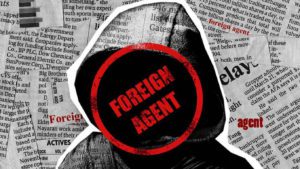In the words of the Iron Chancellor Otto von Bismarck, one of Germany’s great leaders and statesmen in the country’s two centuries of modern history: “Not by speeches and votes of the majority are the great questions of the time answered, but by iron and blood.” To me, this summarizes perfectly what radicalization in Germany signifies, as the history of the modern German state was built on the backs of radicals, for good or ill. Radicals were the unifying force glueing together Prussia and the fractured kingdoms of the Holy Roman Empire into a single national identity. This resulted in a xenophobic and supremacist state, spearheaded by history’s most infamous moustachioed despot. This finally led to the re-emergence of the German far-right simultaneously clashing with far-left radicals, with militant Islamism in between the two. If one thing has remained consistent since the first unification of Germany, it’s that the country has experienced radical forces in their struggle to change the course of history. In Europe, only France surpasses Germany in terms of revolutionary and radical history and is about on par with Italy. Safe to say Germany, has had its fair share of iron and blood.
To understand why the creation of the modern German state was such a radical endeavour, one must consider that being ethnically German was and is not a monolithic concept. To illustrate my point, have a look at the map below. If your first thought is, “What the hell is going on here?” and that’s precisely my point. Attached to this article is a map of the Holy Roman Empire in 1789, 17 years before its dissolution by Napoleon in 1806, with the blue representing Prussia and the large orange territory representing the Austrian part of the Habsburg Empire. As power was very decentralized, a uniform identity was unthinkable at the time. Despite cultural and linguistic similarities between all the Germanic kingdoms, politics and a sharp Catholic-Protestant divide were the main factors for disunity. That explains why all German-speaking peoples aren’t part of Germany today, like Austria, Liechtenstein and parts of Switzerland among others. It is a modern reminder of the deep divides of time.
Tracking back to the topic of political radicalization, this system of fiefdoms and petty kingdoms had been in place for centuries and was primarily ended due to a new wave of nationalists who saw beyond the political and religious divides, focusing on linguistic and cultural similarities as a way to forge a union. Gradual changes like a common customs union and the establishment of an ever-changing German Confederation helped set a framework for eventual unification. Even so, the major kingdoms of Prussia and Austria vying for power amongst one another with the smaller Germanic kingdoms was an obstacle. This all changed in the spring of 1848, where like in other nations across Europe, revolution erupted in Germany, with revolutionaries demanding the unification of all German states under a single constitution and with a single parliament holding power. This led to the Frankfurt Parliament of 1849, where delegates of the various Germanic kingdoms present agreed to unification and crowned Prussian King Frederick Wilhelm IV as the first German Kaiser. He, however, refused the crown due to a multitude of reasons. Regardless, the fact radical liberals had gotten this far was truly impressive and gave hope for success in the future.
Fast forward to 1861 to the appointment of a conservative political novice named Otto von Bismarck as Prussian Chancellor. His legendary strategy of Realpolitik, coupled with events such as war with Denmark, Austria and France, forged Prussia into a European power by absorbing almost all the remaining German states. This was completed in the Hall of Mirrors in Versailles after a resounding Prussian victory over the French in 1871. Thus, modern Germany was born through radical contributions on both sides of the political spectrum.
Of course, I have tried to simplify and condense these events as best I could while relating them to political radicalization, but this period was far too complex and confusing to fit in any single article, so I encourage further reading if this is a topic that piques your interest.







